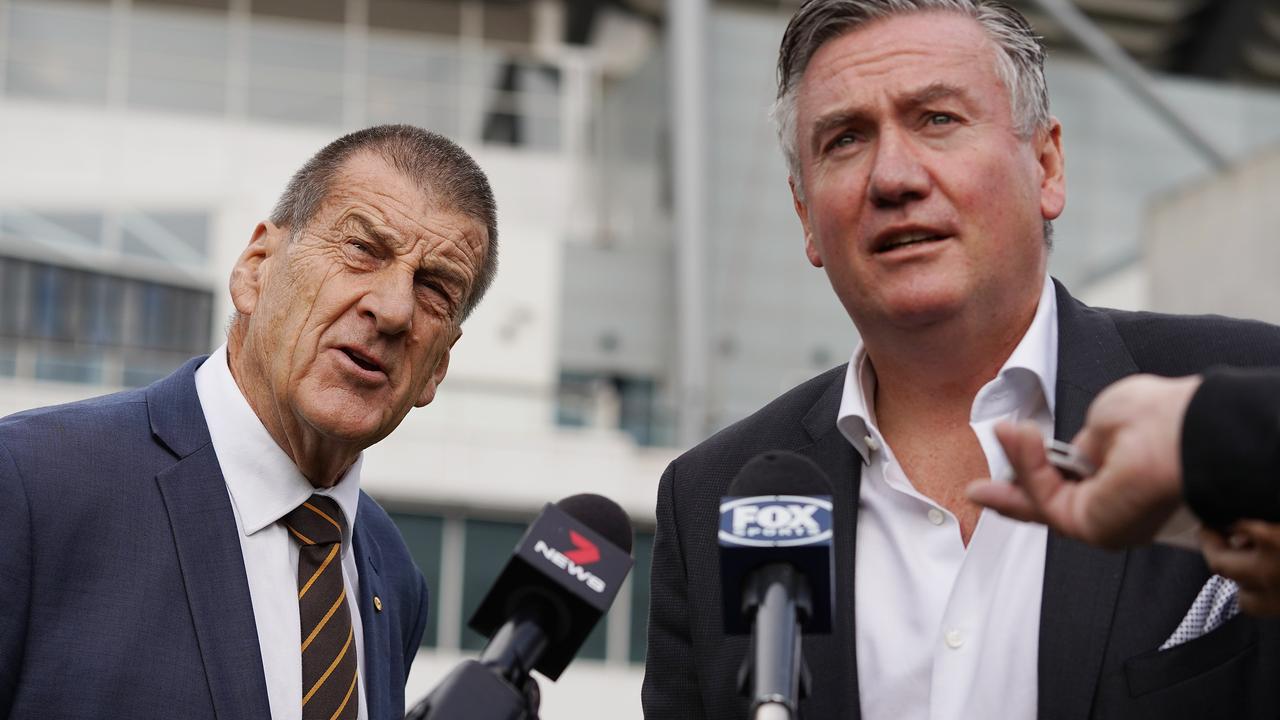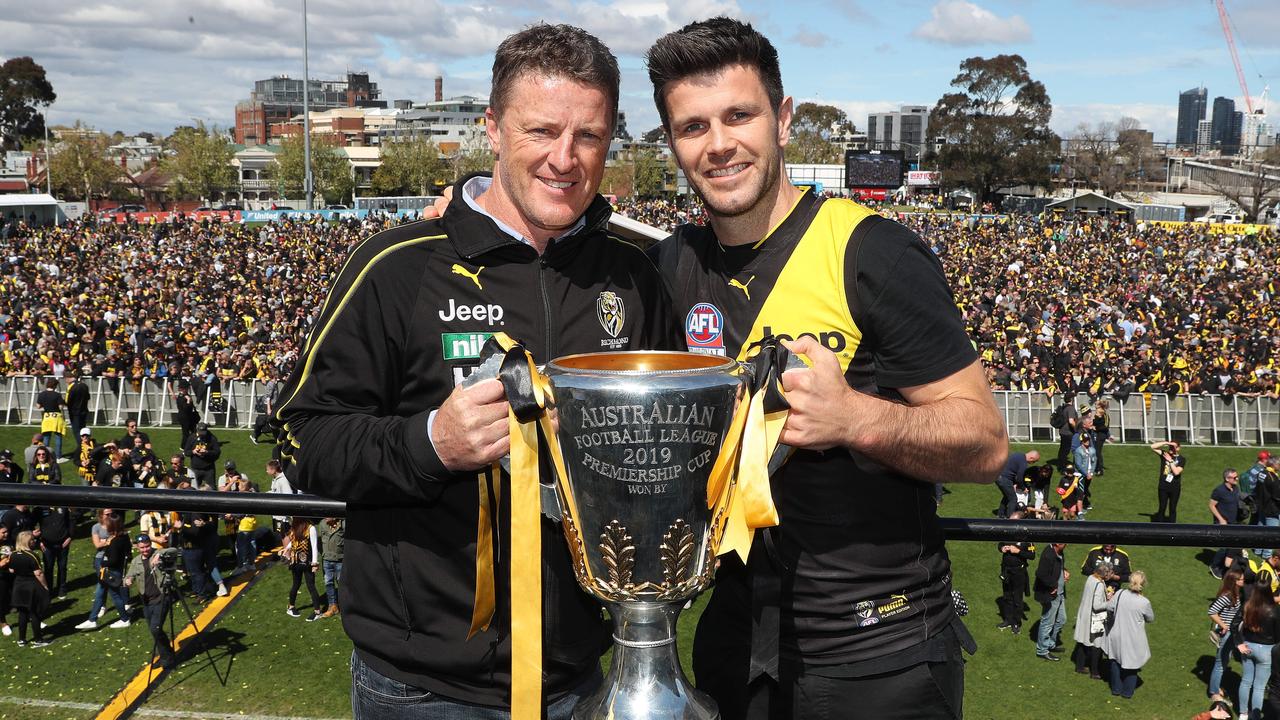In an era of billion-dollar distractions in professional sport, Roger Rasheed sets an example by touching the base at Kangaroo Island
TWO of South Australia’s great sporting achievers — tennis coach Roger Rasheed and Port Adelaide football winner Brian Cunningham — stepped away from the elite this week to inspire a new generation at Kangaroo Island.
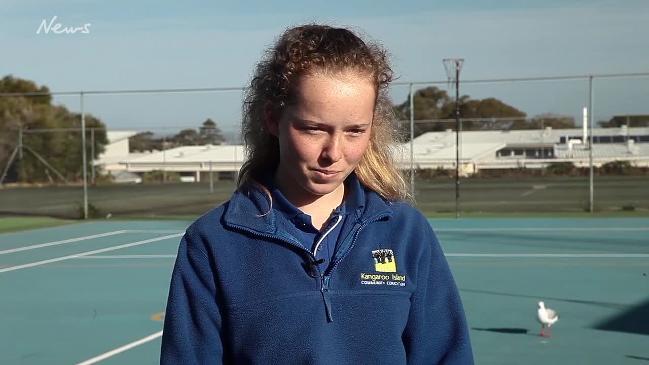
ROGER Rasheed has some big-ticket items on his agenda now that the South Australian’s portfolio includes a place in the ATP board room, the seat of world power in men’s tennis.
What becomes of the Davis Cup? Three or five sets in Grand Slam events? Tiebreakers in the fifth set?
But — in a lesson the AFL Commission needs to remember as it prepares to deal with how rule changes to Australian football go further than just 18 elite teams in the big league — Rasheed this week touched the base of the huge tennis pyramid.
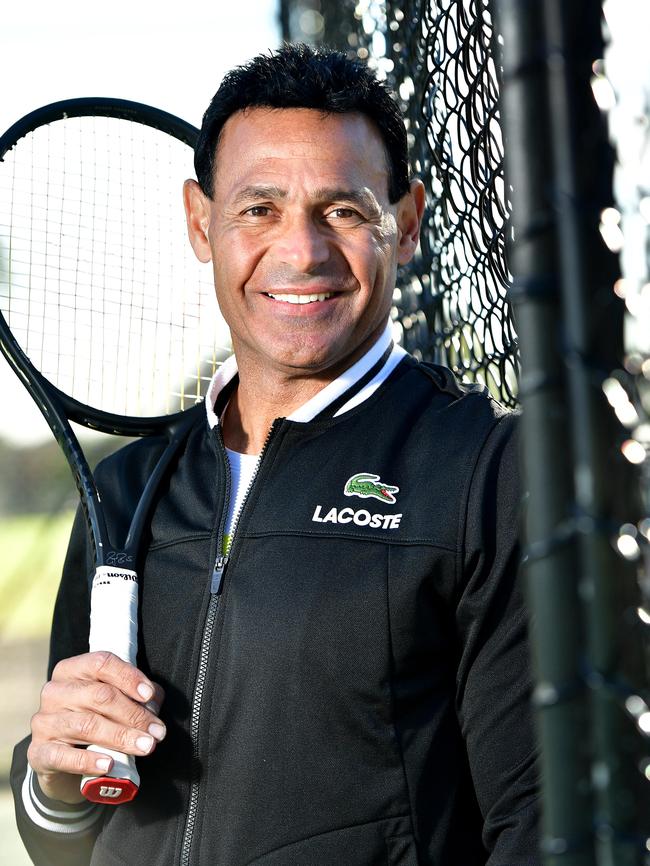
Rasheed was on Kangaroo Island, partnering another grand achiever in SA sport, former Port Adelaide chief executive and player Brian Cunningham, in a leadership mentoring program. They counselled 11 locals who could one day shape the world from Kingscote on tourism, winemaking, farming and social issues.
If the boy from suburban tennis courts of Adelaide can make it to the grand halls of Wimbledon to influence the future direction of a multibillion-dollar sport, why should Kangaroo Island be considered a point of isolation — with or without a bridge?
Remarkably (or perhaps not when there is a chance to escape the classroom), there were 135 schoolchildren (and some teachers) who wanted to have a hit with Rasheed on the Kingscote tennis courts on Thursday afternoon.
They came on buses from Penneshaw and Parndana.
And by late afternoon, they were learning from Rasheed — who coached, among others, Wimbledon champion Lleyton Hewitt from 2003-2007 — just how grand careers begin in international sport … and what sacrifices are required to reach the top of the world rankings.
Cunningham, now a successful player in the consultancy game, took Rasheed to Kangaroo Island to create new confidence in a community that can feel “forgotten” amid isolation off Cape Jervis. Like all town folk on the mainland, the islanders do find great inspiration from sports … and its achievers, such as Brendon Lade who advanced from the Western Districts Football Club on KI to play a significant role in Port Adelaide’s breakthrough AFL premiership in 2004.
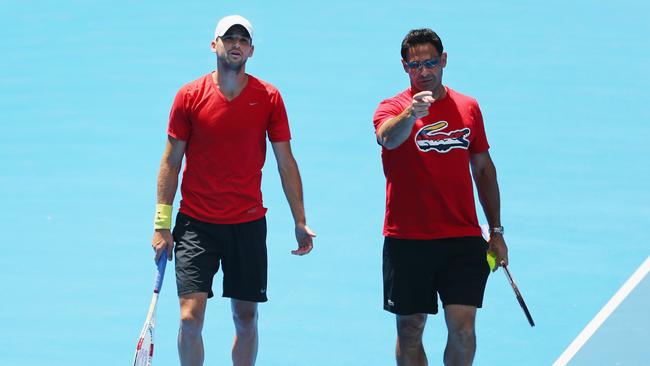
Of the 135 who had a hit with Roger on Thursday, there might be one or two who now dream of greatness on grass, clay or cement at Wimbledon, Roland Garros or Rod Laver Arena. The question — more and more relevant as the grassroots of all sports demand more and more from volunteers — is how this dream continues to be nurtured as Rasheed re-crossed the Backstairs Passage?
And what mark did 135 schoolchildren leave on Rasheed that might reshape the agenda at the ATP boardroom beyond the big-business questions of television and corporate deals, social media (that has no power on the island if the internet links fail) and five-set tiebreaks.
The reassuring note for tennis is Rasheed, after years of being on millionaires’ row in London, New York and Paris, still remembers how the game must build its pyramid — from the bottom up.
There are a few at AFL House who might need a refresher course. Perhaps a trip to Kangaroo Island?
REALITY BITES
QUOTE OF THE WEEK
WE want to play every game to win, not trial (changes). There might not be implications for the finals, but there’s players’ careers and club reputations.
GOLD Coast coach STUART DEW putting some much-needed perspective on why the so-called “dead rubber” AFL games at the end of the season are not the place for trials on proposed rule changes.
ROUND 23 FIXTURE
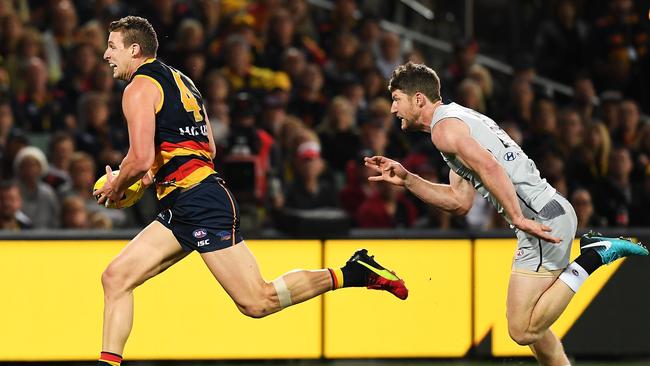
AFL House should soon — perhaps next week — settle the starting times of the nine matches to close the home-and-away season in Round 23. Adelaide should be pressing to have the last game of the round so that the Crows can be 100 per cent certain of what it needs to put on the scoreboard against Carlton at Etihad Stadium if Don Pyke’s crew is in a race for a percentage boost to qualify for September’s top-eight finals.
Funny how a fixture appears so different when it is released in October — and when it is relevant in August. In October, a pre-finals duel with the Blues would have been considered a curse in setting up a team for a premiership tilt. In August, it appears a super game — just ideal before a final.
PUBLIC NOTES
WHEN Fremantle captain MATTHEW PAVLICH was president of the AFL Players’ Association (2015-2017), the players’ union — as it does today — was reluctant to follow the path of other professional sports with public declaration of salaries.
But now that Pavlich is on the Channel Nine sports news desk in Perth, he has tweeted with emphasis on a player salary. He wrote this week: “Massive night ahead (for Nine’s news service) as we chat live to the $6 million dollar man (West Coast defender) Jeremy McGovern (who passed up free agency to sign a five-year deal with West Coast) …”
Different role, different needs.
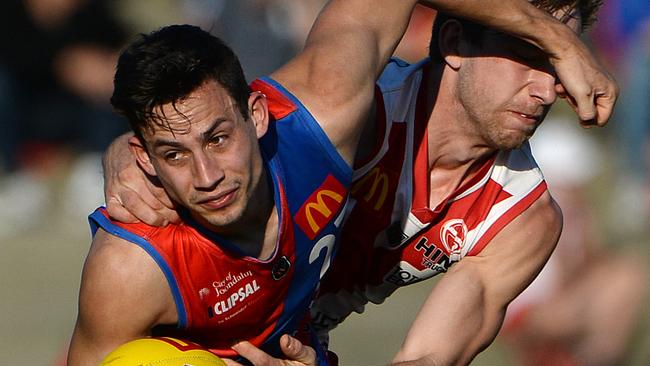
FALCON WOES
PREPARE for much more tension amid the SANFL and AFL in the “national reserves debate”, particularly as the two leagues stand well apart on how to work their competitions to differing rule books next season.
And there is not much comfort in the WAFL either as West Coast prepares to set up its stand-along reserves team — and 127-year-old WAFL club West Perth (home of Norwood great JOHN WYNNE) hits a financial challenge. The Falcons — with debts of more than $600,000 — have required a $250,000 loan from the WA Football Commission to reassure their players of their payments.
Australian football certainly seems to have more problems than ever envisaged three years ago when a record $2.5 billion television deal was signed at AFL House.
OVERHEARD
VOICES do carry in some Adelaide restaurants. One voice certainly did at George’s on Waymouth this week as a noted former AFL identity was at lunch and had conversation turn to the Adelaide Football Club … unaware a member of the Crows board was within earshot.
Sometimes the mirror inside a clubhouse doesn’t always reflect what others think on the outside. Still, it is always good to get some uncensored feedback.
MEMORY CONGESTION
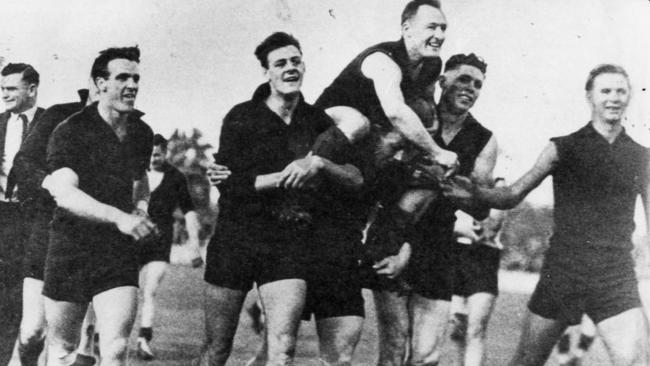
IT is true, the memory does play tricks. And as the AFL argues congestion is a modern problem for Australian football, there is more and more evidence that the game has for a long time had many players drawn to the contest as bees rush to a honey pot.
At Adelaide Oval, on the old walls of the western grandstand is a black-and-white picture of the 1946 SANFL grand final between Norwood and Port Adelaide. Captured as play works to the north-western pocket, the photograph reveals 30 players in one corner of the field … congestion, congestion, congestion.
Also good for a memory refresher is the “rectangular” shape of the Oval’s playing field — and how the old scoreboard (now dwarfed by the eastern pavilions) stands large over the then record crowd of 53,473.
THOUGHT OF THE WEEK
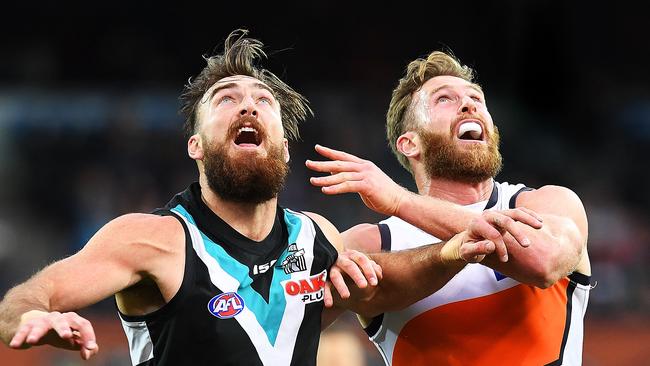
SEEMINGLY certain in the AFL’s plans to rewrite its rule book is the concept of “starting positions” with six forwards inside-50, six defenders in the other 50-metre arc and the centre square having four players inside and two working in vast space, as wingmen did long ago.
Critically, this will reward teams with assertive ruckmen setting up their midfielders for quick plays from centre. This makes it a good time to be a ruckman falling out of contract … such as DAWSON SIMPSON at Greater Western Sydney.
TWEET OF THE WEEK
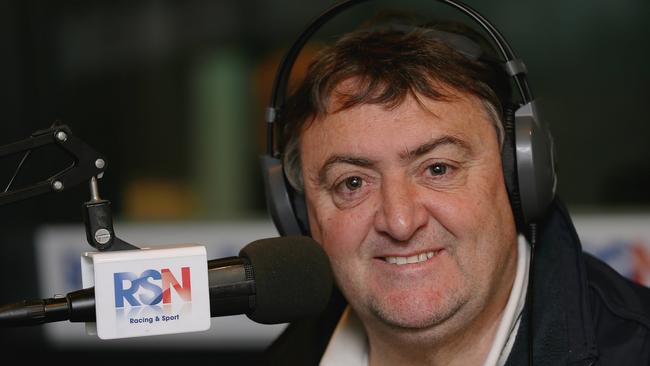
TRIALLING new rules during an AFL season surely compromises its integrity. Staggering thoughts. Policy on the run. Stop jumping at shadows.
COLLINGWOOD premiership player MICK McGUANE on the AFL’s proposed rule changes.
michelangelo.rucci@news.com.au

